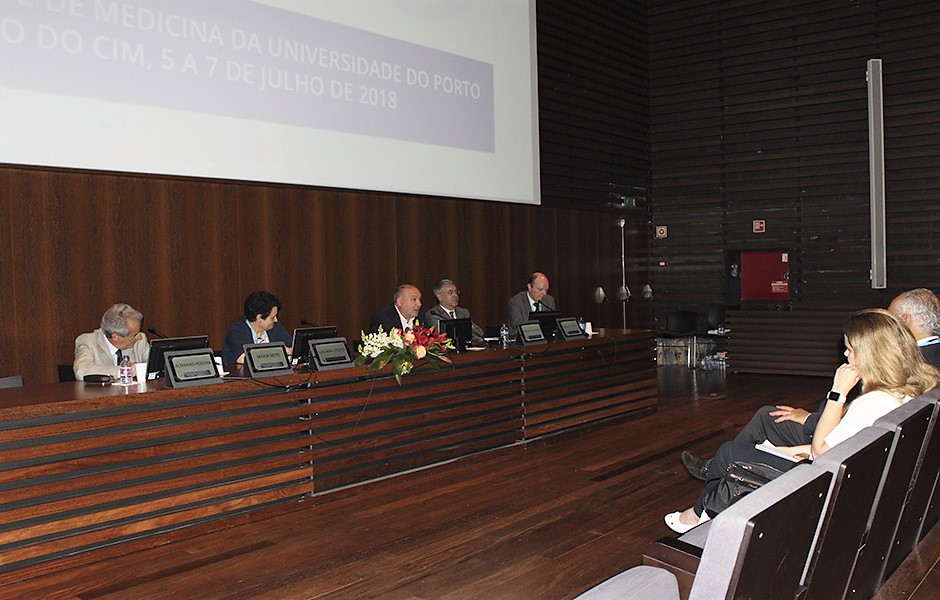The Congress of Preventive Medicine takes places from July 5 to 7, organized by MEDCIDS – Department of Community Medicine, Health Information and Decision of the Faculty of Medicine of the University of Porto, sponsored by CINTESIS – Center for Health Technology and Services Research.
The opening session was attended by Paulo Santos, President of the Congress, Altamiro da Costa Pereira, director of MEDCIDS and CINTESIS coordinator, Luciana Couto, representative of the Portuguese Order of Doctors, Pimenta Marinho, president of the Regional Health Administration (ARS / Norte), and Rui Nogueira, president of the Portuguese Association of General and Family Medicine (APMGF in Portuguese).
During his speech, Altamiro da Costa Pereira did not fail to observe that the audience of this Congress of Preventive Medicine was mainly composed of people from the General and Family Medicine (MGF) field and that the younger ones were in the majority. It was to this new generation of MGF specialists or interns whom he launched the first of three appeals, which he called “the generational appeal,” to be “more active” and have a “voice of their own”, grounded in technology but “prudent and humanistic.”
The second appeal was that the academy should seek a “symbiosis” with those who are on the ground “so that knowledge ends up prevailing over quackery.” The official was apprehensive about the advance of “mercantilist” tendencies contrary to science and dangerous for the health of the population.
The third and final appeal was that, through the “marriage” between knowledge and practice, we go “towards a more educated, healthier and more sustainable society”.
Earlier, the ARS/Norte President had quoted the Head of MEDCIDS/CINTESIS as stressing the importance of linking research and medical practice. On her part, Luciana Couto, who was representing the President of the Portuguese Order of Doctors, expressed her satisfaction with the continuation of this type of event tradition, which was preceded by another meeting of her responsibility, The Days on Risk Factors and Clinical Guidelines in Primary Health Care.
The president of this congress stressed that Preventive Medicine should be constituted as “global medicine”, which implies “an effort to educate to improve the skills of citizens in health.”
According to Paulo Santos, who is also the principal investigator of the CINTESIS research group PrimeCare, Portugal continues to have excellent health indicators in some areas, such as infant mortality, which is classically mentioned as an example. However, there are other indicators in which Portugal is below other countries. According to the specialist, one of the causes is underfunding, right in the field of preventive care. “We have to find the funds for health and work hard on actual health policies instead of disease policies,” he said, referring to some of the challenges facing our National Health Service (SNS in Portuguese), about to turn 40.
Another of the highlights of the first day of work was the conference given by Rui Cernadas, chaired by Altamiro da Costa Pereira. The program, which runs through July 7, also includes topics such as cardiovascular prevention (hypertension, diabetes, dyslipidaemia), cancer prevention, vaccination, respiratory diseases, sexually transmitted infections, elderly health issues, mental health, oral health, health literacy and quaternary prevention.

